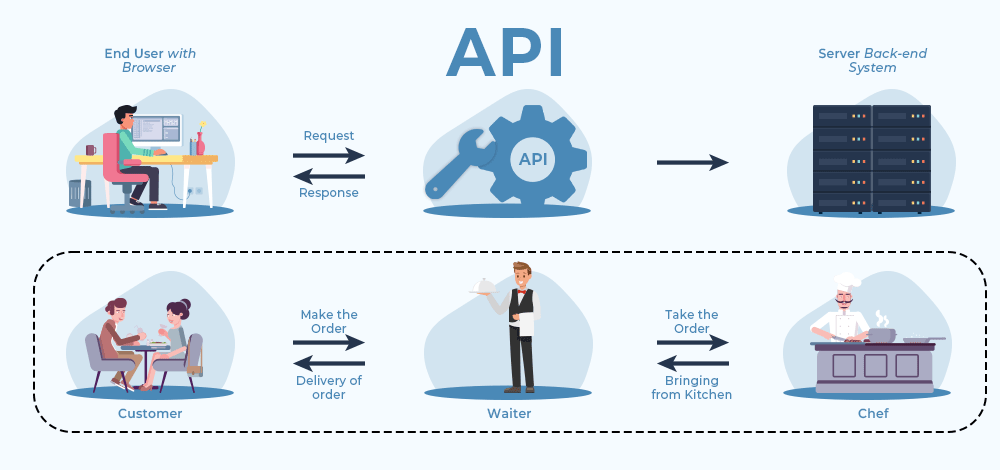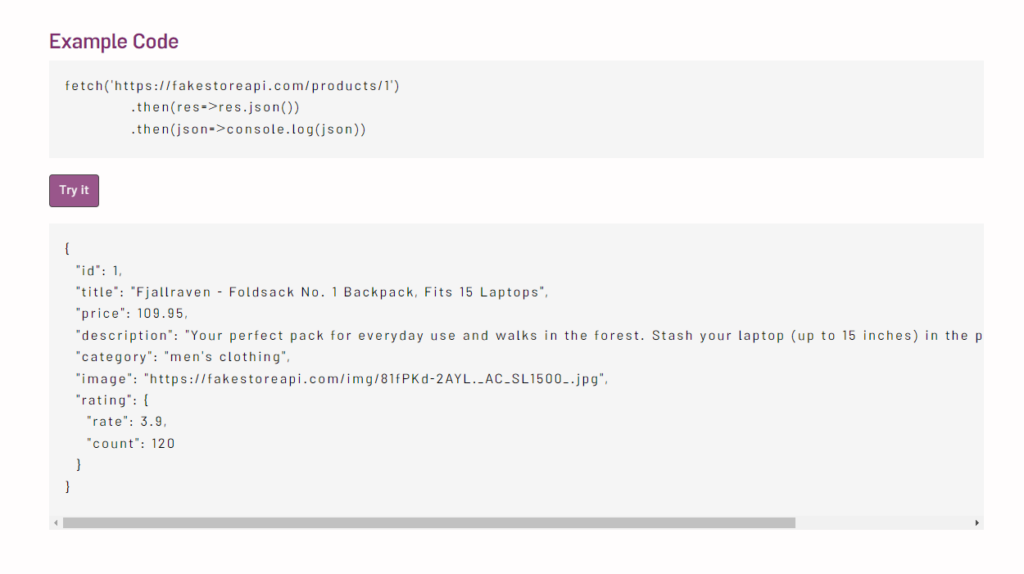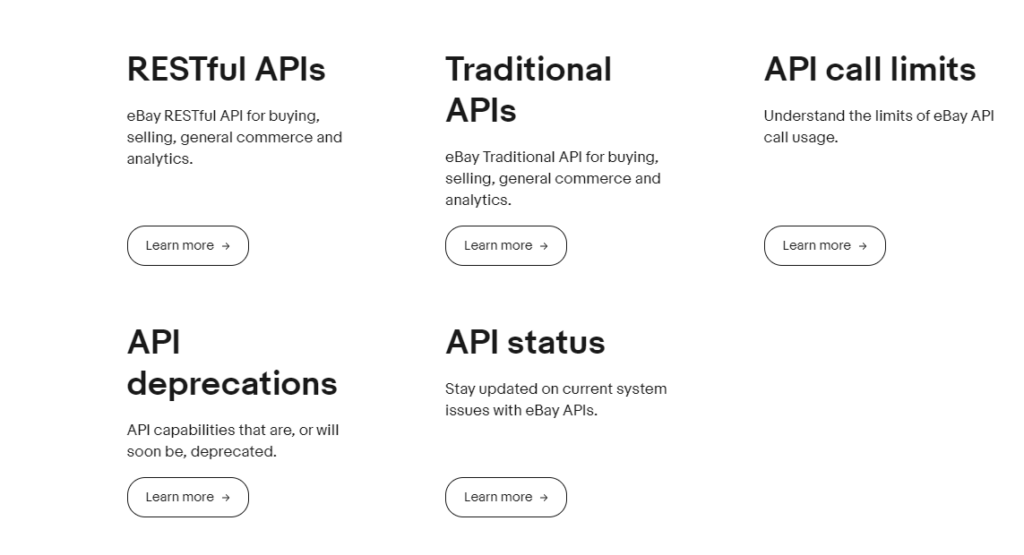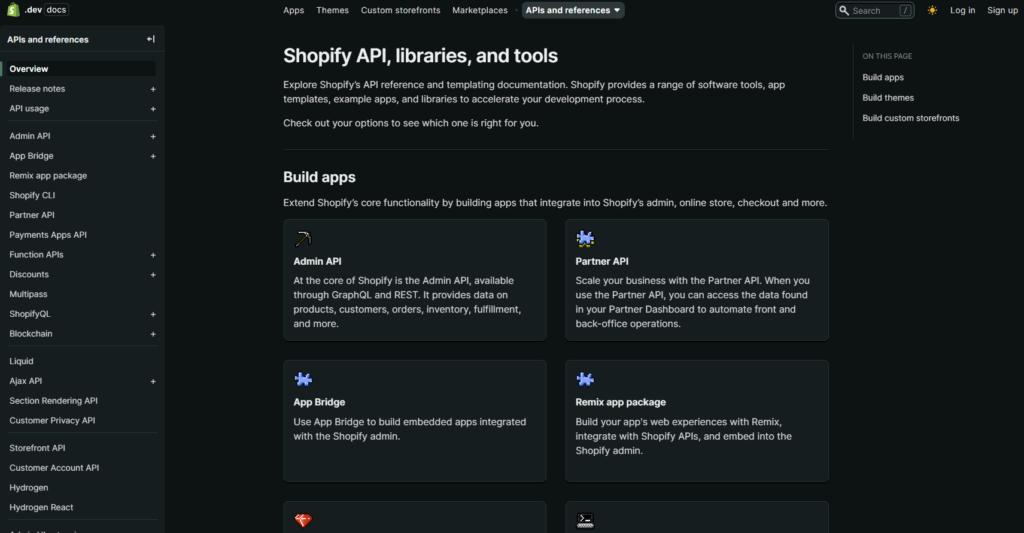Introduction: APIs for E-commerce
In this blog post, we will explore the concept of free APIs for e-commerce websites, discussing what they are, why they are important, and how you can utilize them to create a robust and feature-rich online store.
So, whether you are a developer looking to build a shopping website prototype or a business owner seeking to improve your e-commerce platform, read on to discover the power of free API for ecommerce website solutions.
What is an API?

Source: GeeksforGeeks.com
An API, or Application Programming Interface, is a set of defined rules and protocols that allow different software applications to communicate and exchange information.
In simpler terms, it is an interface that enables developers to build applications that can retrieve and manipulate data from other applications or services.
For e-commerce, APIs are crucial as they facilitate the integration of various features and functionalities that are essential for online stores, such as product catalogs, shopping carts, payment gateways, and more.
What are E-commerce APIs?
E-commerce APIs, or store APIs, are specifically designed to meet the unique needs of online stores and e-commerce platforms.
These APIs provide developers with a set of tools and functionalities that are commonly required in the e-commerce space, such as product data retrieval, shopping cart management, order processing, and user authentication.
Using ecommerce APIs allows developers to quickly and easily integrate these features into their applications, saving time, effort, and resources.
Why Use a Free API for Your E-commerce Website?
When building an e-commerce website, you might consider using a free API, also known as a store REST API.
While there are paid options available, free ecommerce APIs can offer a cost-effective way to integrate essential features into your online store.
Here are some reasons why you should consider using a free API for your e-commerce website:
- Cost-effectiveness: Free APIs do not incur any direct monetary costs, making them an attractive option for developers and businesses, especially those with limited budgets. By using free ecommerce APIs, you can allocate your financial resources to other critical areas of your e-commerce business.
- Functionality: Despite being free, many of these APIs provide a wide range of functionalities and features that are specifically tailored to e-commerce websites. From product catalog management to secure payment processing, free ecommerce APIs can offer everything you need to build a fully functional online store.
- Ease of Integration: Free APIs are often designed with simplicity and ease of use in mind. Many providers offer comprehensive documentation, tutorials, and support to help developers integrate the API into their applications quickly and efficiently. This can speed up development time and reduce the complexity of building an e-commerce website.
- Community and Support: Free and open-source APIs often have active and engaged communities of developers and users. This can be a valuable resource for troubleshooting, sharing best practices, and staying up-to-date with the latest developments and integrations. The community aspect can provide a level of support and guidance that may not be available with paid, proprietary APIs.
- Flexibility and Customization: Free APIs often offer a high degree of flexibility and customization. Developers can choose the specific features and functionalities they need, tailoring the API to their unique requirements. This flexibility allows for the creation of unique and differentiated e-commerce experiences.
Popular Free E-commerce APIs
Now that we’ve discussed the benefits of using a free API for ecommerce website development, let’s explore some of the popular options available to developers.
Each of these APIs offers a unique set of features and capabilities that can enhance your online store:
Fake Store API

The Fake Store API is a fantastic option for developers looking to create a shopping website prototype or test their e-commerce applications.
As the name suggests, this API provides fake but realistic product data, including product names, descriptions, prices, and images.
With this API, you can easily simulate a functioning e-commerce store without the need for actual product inventory.
This is perfect for development, testing, and even for designers looking to mock up an online store.
The Fake Store API is free to use and provides a RESTful interface, making it accessible and compatible with a wide range of programming languages and frameworks.
Amazon Product Advertising API

While not entirely free, the Amazon Product Advertising API, or Amazon PA API, offers limited free access for developers.
This API provides access to Amazon’s vast product catalog, allowing you to retrieve product information, reviews, prices, and availability.
With this API, you can build applications that leverage Amazon’s product data, perfect for price comparison websites, product review aggregators, or even to enhance your own online store by suggesting complementary products from Amazon.
To use the Amazon PA API, you will need to create an Amazon developer account and apply for access.
There is a limited free tier, making it a great option for developers on a budget.
eBay APIs

eBay offers a comprehensive set of free ecommerce APIs that provide access to its massive marketplace.
With these APIs, developers can build applications to search for products, retrieve detailed product information, manage eBay stores, and process orders.
The eBay APIs are ideal for those looking to integrate eBay’s marketplace into their e-commerce offerings, whether as a standalone store or as a way to expand their existing product catalog.
eBay provides extensive documentation, making it easy for developers to get started and offering a seamless integration experience.
Shopify Free E-commerce APIs

Shopify, a leading e-commerce platform, offers a range of free APIs that are worth considering.
While you will need a paid Shopify account to fully utilize these APIs for your online store, they do offer a free development store that provides access to the same set of APIs.
With the Shopify APIs, you can manage products, collections, customers, orders, and more.
Additionally, Shopify provides excellent documentation, making it easy for developers to get started and offering a seamless integration process.
If you’re already using Shopify or considering it as your e-commerce platform, their free APIs are definitely worth exploring.
Walmart Data Service API

Walmart, one of the largest retailers in the world, offers the Walmart Data Service API, which provides access to their product catalog, customer reviews, and store information.
With this API, developers can build applications that leverage Walmart’s extensive product data, including real-time pricing, product availability, and rich product attributes.
The Walmart API is ideal for those looking to integrate Walmart’s marketplace into their e-commerce offerings or for developers wanting to provide price comparison features utilizing Walmart’s vast product database.
Here are other notable APIs for eCommerce website:
| API | Use Case |
| Shopify API | Custom apps, integrations, shopping experiences |
| Stripe API | Payments, subscriptions, invoices, checkout flows |
| Algolia API | Fast and relevant search functionalities |
| SendGrid API | Transactional & marketing emails, automation |
| eBay API | Listing tools, price comparison, storefronts, integration |
| Etsy API | Listing tools, social media integration, storefronts, integration |
| WooCommerce REST API | Custom dashboards, integrations, shopping experiences (WordPress) |
| Magento REST API | Custom dashboards, integrations, shopping experiences (Magento) |
| BigCommerce API | Custom applications & integrations for BigCommerce stores |
| Best Buy API | Price comparison, product recommendations (Best Buy product data) |
Best Practices for Using Free E-commerce APIs
When using free ecommerce APIs, there are several best practices to keep in mind to ensure a smooth and successful integration:
- Read the Documentation: Always take the time to thoroughly read the API documentation provided by the vendor. This documentation will outline the specific endpoints, parameters, and data formats required to use the API effectively. Understanding the API’s capabilities and limitations will save you time and effort during development.
- Test Thoroughly: Before integrating an API into your production environment, ensure that you have thoroughly tested it. Many API providers offer sandbox or testing environments that mimic the production API but do not affect live data. Take advantage of these to simulate different scenarios and ensure that the API functions as expected.
- Handle Errors Gracefully: Anticipate that errors will occur during API integration and handle them gracefully. Implement error handling mechanisms that provide meaningful feedback to users while also logging the errors for debugging purposes. This will help you identify and resolve issues quickly and efficiently.
- Ensure Compatibility: Different APIs may have specific requirements or constraints, such as data formats or rate limits. Ensure that your application is compatible with these requirements to avoid unexpected issues or performance degradation.
- Stay Up-to-Date: API providers often release updates and improvements, so it’s important to stay informed about any changes. Subscribe to the API provider’s newsletter or follow their developer blog to be notified of any updates or breaking changes that may impact your integration.
Key Features to Look for in a Free API for E-commerce Website
When selecting a free API for your e-commerce website, there are several key features you should look out for to ensure it meets your needs:
- Product Data: The API should provide access to product data, including product names, descriptions, prices, images, and availability. This is essential for building an online store or any application that relies on product information.
- CRUD Operations: Look for an API that supports Create, Read, Update, and Delete (CRUD) operations. These basic operations are crucial for managing product data, user accounts, shopping carts, and other dynamic aspects of your e-commerce website.
- Authentication: The API should offer a secure authentication mechanism to protect user data and ensure only authorized access. Look for APIs that support industry-standard authentication protocols such as OAuth 2.0 or JWT (JSON Web Tokens).
- Shopping Cart Management: If you are building an online store, look for an API that provides shopping cart functionality, allowing users to add and remove items, calculate totals, and proceed to checkout.
- Payment Processing: While not all free APIs offer payment processing capabilities, some do provide integrations with popular payment gateways. This can simplify the process of accepting payments from customers and reduce the complexity of PCI compliance.
- User Management: The API should provide endpoints for user management, including user registration, login, and profile management. This is essential for building a personalized and secure e-commerce experience.
- Order Management: Look for an API that offers order management capabilities, allowing you to track and manage orders, process refunds, and provide order status updates to customers.
- SDKs and Developer Tools: Choose an API that provides a range of SDKs (Software Development Kits) and developer tools in various programming languages. This will simplify the integration process and speed up development time.
Benefits of Using Free E-commerce APIs
Using free ecommerce APIs can bring several benefits to your online store or e-commerce project:
- Enhanced Functionality: Free ecommerce APIs can add a wide range of features and functionalities to your online store, from product catalog management to secure payment processing. This allows you to provide a rich and engaging experience for your customers.
- Cost Savings: By utilizing free APIs, you can significantly reduce the development cost of your e-commerce website. These APIs are often provided by large companies that have already invested in building and maintaining the infrastructure, passing the savings on to you.
- Time to Market: With free ecommerce APIs, you can accelerate your time to market. Instead of building every feature from scratch, you can leverage existing APIs to quickly integrate critical functionalities, getting your online store up and running faster.
- Focus on Core Competencies: By relying on free APIs, you can focus your development efforts on your core competencies and unique value propositions. This allows you to allocate resources efficiently and build a differentiated offering.
- Scalability: Free ecommerce APIs are often designed to handle high volumes of traffic and data. By leveraging these APIs, you can benefit from their scalability and reliability, ensuring your online store can handle increased demand and growth.
Powering Your E-commerce Website with Free APIs
In conclusion, free APIs play a crucial role in the development and enhancement of e-commerce websites.
By utilizing free API for ecommerce website solutions, developers and businesses can access a wealth of features and functionalities without incurring additional costs.
From product data to payment processing, these APIs provide the building blocks necessary to create a robust and engaging online store.
With the right combination of free ecommerce APIs, you can save time, reduce costs, and focus your efforts on creating a unique and differentiated shopping experience.
Additionally, free APIs often come with active developer communities and extensive documentation, making integration easier and providing a platform for ongoing support and innovation.
As we’ve explored in this blog post, there is a diverse range of free ecommerce APIs available, each offering unique capabilities.
Whether you’re looking for product data, shopping cart functionality, or user management tools, there’s an API that can meet your needs.
So, start exploring the world of free API for ecommerce website development and unlock the potential of your online store. Happy coding!
Read also:

